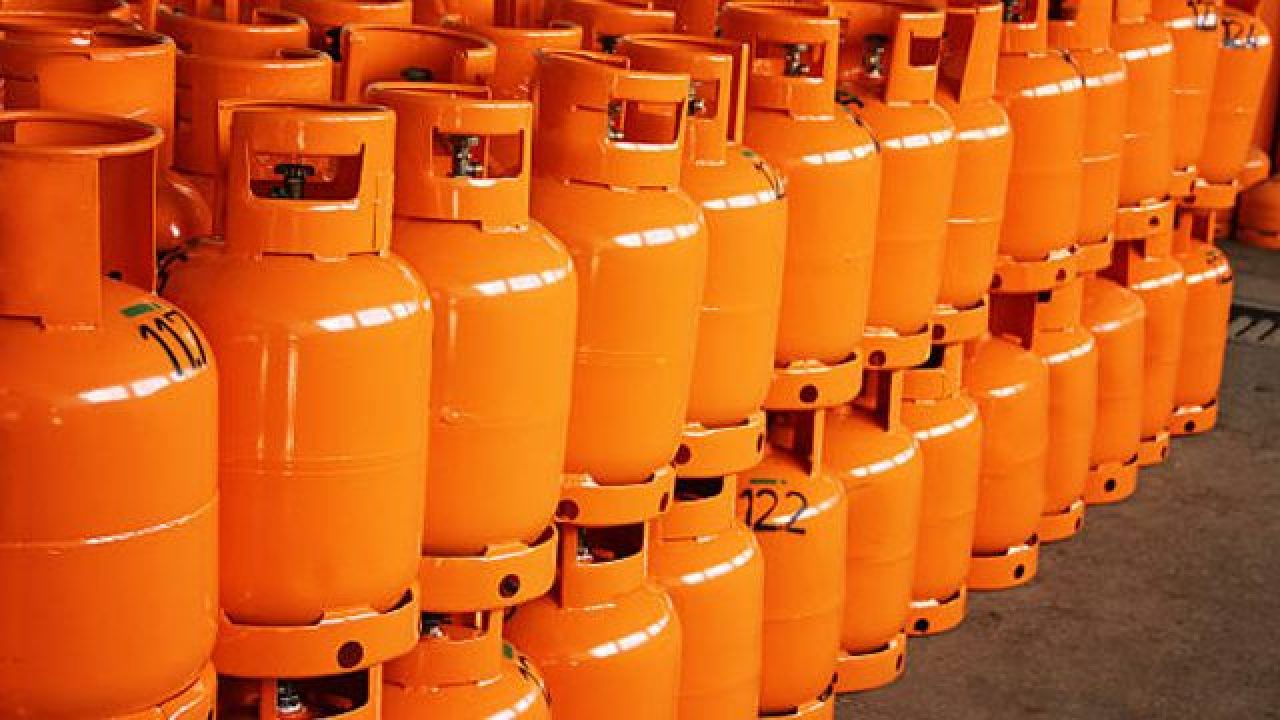Oil & Gas
Natural Gas Exploitation now Our Focus – FG

By Joseph Amah, Abuja
The Federal Government says it is directing its attention to natural gas exploitation in the country, adding that it is going to make more investments in the sector.
President Muhammadu Buhari who disclosed this while addressing the 6th Gas Exporting Countries Forum (GECF) Summit in Doha, Qatar, yesterday, said the enactment of Petroleum Industry Act (PIA) was designed to enable Nigeria to derive more value from natural gas.
Buhari was represented by Chief Timipre Sylva, Minister of State, Petroleum Resources, according to a statement by Horatius Egua, Senior Adviser to the Minister on Media and Communications.
Buhari said the recent enactment of the PIA was an indication of government’s commitment to derive more value from natural gas by providing required governance, regulatory and fiscal framework to support the industry’s growth.
He said Nigeria, a gas province with some oil was committed to sustainable growth of natural gas exploitation and utilisation, both for domestic use and export via LNG and pipeline gas to sub-regional African countries.
According to the president, Nigeria is embarking on different initiatives, projects, and policies to enhance the performance of the oil and gas sector.
He listed some of the gas initiatives Nigeria is currently embarking upon to include the National Gas Expansion Program (NGEP).
“NGEP is designed to provide framework and policy support to extend gas supply and utilisation in power generation, gas-based industries and in emerging niche gas sectors.
“Such are gas in transportation, Liquefied Petroleum Gas (LPG) for cooking and remote virtual gas supply using trucks to convey LNG and Compressed Natural Gas (CNG) to industries,” he said.
The other initiatives according to the president are the Ajaokuta-Abuja-Kano gas pipeline to support five billion cubic feet per day of domestic gas utilisation in the near term and five-Gigawatt power generation.
“The expanding of the current LNG production capacity to about 30 million tons per annum at Bonny with the on-going N-LNG Train seven project and the declaration of 2021-2030 as the Decade of Gas towards a gas-powered economy.
“This would not only lower Nigeria’s – Gas (GHG) emissions but also reduce the country’s import bills.”
To achieve the set objectives, the president stressed the need to work together as policymakers, investors, decision-makers, researchers, and technology developers to make modern energy sources such as natural gas available and affordable to all.
While restating Nigeria’s commitment to Conference of Parties (COP26) Glasgow declaration towards zero carbon emissions, Buhari however underscored the importance of natural gas for effective energy transition towards a low carbon future.
He equally emphasized the need for natural gas as a fuel for socio-economic development, taking into consideration its credentials such as abundant, flexible, cleanest fossil fuel, and its versatility.
Oil & Gas
NNPC Ltd. Disclaims Fake Financial Scheme

The Nigerian National Petroleum Company Limited (NNPC Ltd.) has disowned a fake AI-generated video circulating on social media featuring a cloned voice of the Group CEO, Mr Bayo Ojulari, promoting a fictitious poverty alleviation scheme.
The Chief Corporate Communications Officer, NNPC Ltd.
, Olufemi Soneye in a statement on Thursday clarified that the company had no such investment initiative.Soneye urged the public to disregard the video, originally shared by an account named Mensageiro de Cristo on Facebook.
“NNPC Ltd. has warned the perpetrators to cease their fraudulent actions or face legal consequences,” he said. (NAN)
NEWS
NGEP Urges Gas Reticulation In Buildings

By Olasunkanmi Onifade
Abuja, April 29, 2025 The National Gas Expansion Programme (NGEP) has called on stakeholders to promote the integration of gas reticulation systems in estates, districts, and industrial areas, following best practices seen in developed countries.
Chairman of NGEP, Prof.
Mohammed Ibrahim, made the call on Tuesday during the Builders’ Conference and Annual General Meeting of the Nigerian Institute of Building (NIOB), FCT Chapter, in Abuja.The conference, themed “Gas Reticulation in Building: Design, Safety, Environmental Compliance and Prospects for Builders,” focused on enhancing energy infrastructure in Nigeria’s built environment.
Ibrahim noted that with Nigeria’s vast natural gas reserves, gas reticulation offered a sustainable solution to improve energy accessibility, affordability, and reliability in homes and businesses.
“Gas reticulation in buildings presents a compelling pathway to a more sustainable, efficient, and resilient built environment.
“By prioritising sound design principles and ensuring strict adherence to safety and environmental standards, we can unlock the full potential of natural gas to drive progress,” he said.
He highlighted the key benefits of gas reticulation, including energy efficiency, cost effectiveness, versatility, and reliability.
Also speaking, the Chairman of the Council of Registered Builders of Nigeria, Samson Opaluwah, stressed the importance of capacity building for safe and efficient gas distribution.
He said this involved training engineers, technicians, and other professionals in system design, installation, and maintenance, while also strengthening regulatory frameworks and encouraging local innovation and manufacturing.
The Chairman of NIOB, FCT Chapter, Usman Okehi, emphasised the growing need to incorporate gas systems in residential, commercial, and industrial developments across Nigeria due to rising energy demands and gas availability.
According to him, with this advancement comes the need for strict adherence to design standards, rigorous safety protocols, and full environmental compliance.
“It is our responsibility as professionals and regulators to ensure these systems are functional, safe, and environmentally sound,” Okehi said.
He described the conference as a platform where stakeholders could explore the evolving landscape of gas infrastructure in building projects, share best practices, examine safety and environmental considerations, and assess future opportunities for builders in the sector.
The News Agency of Nigeria (NAN) reports that the Nigerian Institute of Building is the professional body for builders in Nigeria. It traces its origins to the Builders’ Society, established in London in 1834.
Oil & Gas
FG Inaugurates Committee to Enhance Gas Distribution in Urban Buildings

The Ministry of Petroleum Resources has inaugurated a Technical Working Group to enhance gas reticulation practices in Nigeria’s building industry.
The ministry’s Permanent Secretary, Amb. Nicholas Ella inaugurated the Technical Working Group (TWG) between the National Gas Expansion Programme (NGEP) and the Council of Registered Builders of Nigeria (CORBON) on Wednesday.
Reports= says that reticulation refers to the process of creating a network of pipes or tubes to distribute gas or other utilities to buildings or industrial sites.
The permanent secretary restated the importance of creating energy smart cities, saying that modern urban development relies on efficient gas and utility distribution systems,
“Most modern cities in developed countries have evolved to energy smart cities where energy, specifically gas and other utilities are piped to districts and estates.
“However, one of the key tools in creating energy smart city is the National Building
Code which, in essence, sets the guidelines on Building Pre-design, designs, construction and post-construction stages,” he said.
The permanent secretary reiterated the benefits of reticulated gas systems for households and businesses alike, adding that it ensured metered supply akin to water and electricity,
According to him, it eliminates the need for cumbersome refills, and also enhances safety by burying pipes and incorporating advanced safety equipments.
“The TWG is tasked with designing a comprehensive policy to implement best practices for gas reticulation using LPG, PNG, and Bio-Gas across Nigeria’s building sector.
“Key responsibilities include reviewing the current National Building Code, examining global gas distribution systems, and proposing quality standards for materials used in gas installations,” he said.
The permanent secretary emphasised the need for rigorous safety protocols and guidelines to ensure the efficient and safe use of gas in construction.
He urged the group to prioritise environmental sustainability in its recommendations, adding that the group is expected to submit its report by Nov. 15.
Earlier, Mr Samson Opaliwah, the Chairman of CORBON. expressed the council’s commitment to collaborate with the group to ensure safe uptake of gas for use in houses and housing estates in Nigeria.
“I assure you of the williness of CORBON to leverage the expertise and resources at her disposal to ensure that steps are put in place for gas infrastructure in buildings and estates.
“The gas infrastructure will be safe, sustainable and world-class.
” Our collective efforts will yield clear, standardised guidelines for safe and effective gas systems in buildings, matched with a skilled workforce to meet growing demands in Nigeria,” he said. (NAN)



















